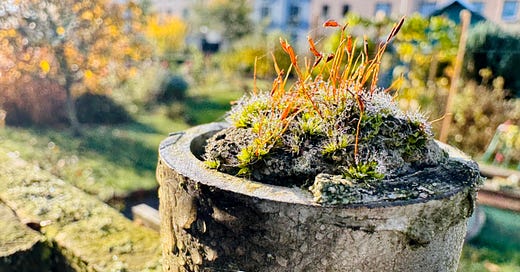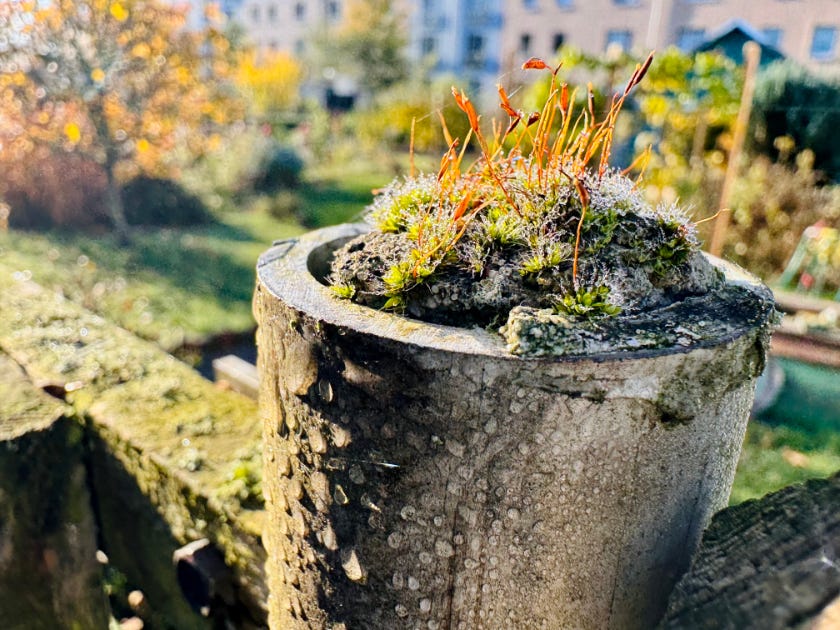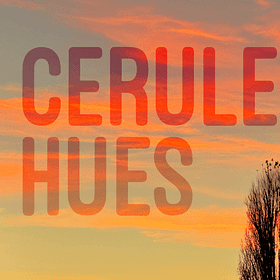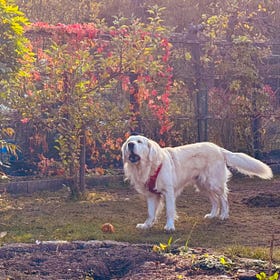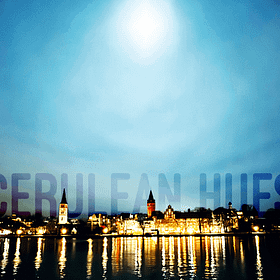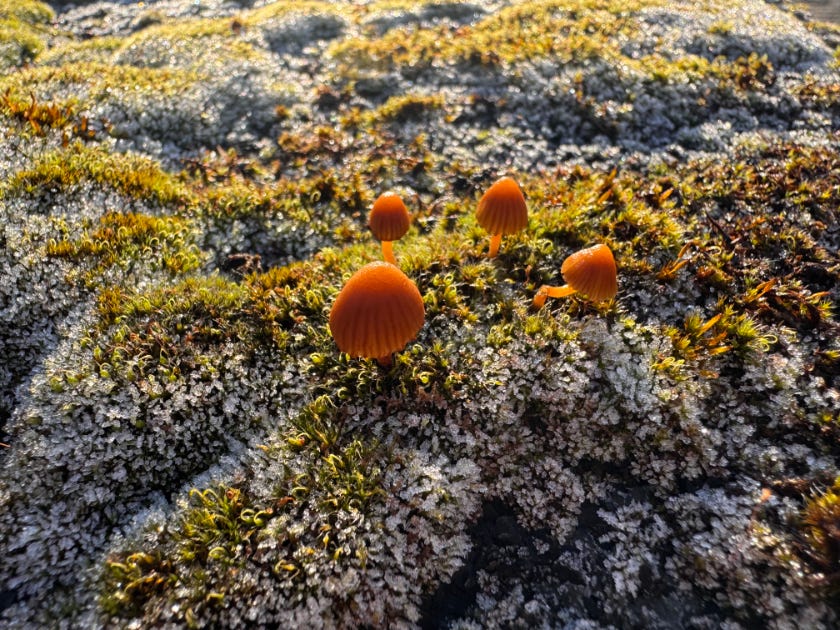New Year 2024/2025
A new year is not just a new start for the calendar, but also for you. It's a psychological reference point. Go save yourself.
Hope Of Deliverance
Our past doesn’t define us, we should search for the allure of the present — but we are caught in it. This happens because currently there is a focus on understanding the past, to fix the current us. There is truth to it, but we need to find the past, like we find a mouldy piece of bread. We see it, understand how it can hurt us and then we throw it out. Give your mouldy bread wings next year.
Stop drifting. […] Sprint for the finish. Write off hopes, and if your well-being matter to you, be your own saviour while you can.
Marcus Aurelius, Meditation 3.14
It’s not as important to look back as people make you believe. Even Roman emperor Marcus Aurelius did not consider looking back at (what was for him) the ancient Romans. His advice to sprint to the finish is much more powerful. The past is a bridge to nowhere. You can’t change it, you can’t rearrange it.
The source of our depressed society is not only the seemingly bleak future, but an obsession with a personal past we can’t do any thing about and a societal past that is made up and never existed anyway.
Many artists — especially poets — seem to drown in this depression, unable to move beyond their personal pain. But there is much more to poetry than telling people how much you are pain. You might see it as a motor for your art, but your readers would rather see you not depressed anymore and it will reveal your best work to come. I know it might feel like losing yourself, but try to lose yours self.
I know this is a big ask. David Foster Wallace, who battled depression himself, captured this struggle in “The Depressed Person”, painting a stark picture of how life can revolve around one’s own sadness. It’s a short but hard read, so I would suggest to read this review fist, before you go into the story itself:
“The Depressed Person” works because it locks the reader in the same cell as the depressed person. She is someone who is buried so deeply under her own sadness and anxiety that nothing that happens to her can have any meaning except in the context of her illness.
Jesse Singal - David Foster Wallace Wrote the Best and Worst Thing About Depression
If you feel attacked, don’t. I know you can not just decide to be different, to wake up in January and have the world be more colourful. My proposal is different. I want you to make the conscious decision to search for beauty not just in yourself, but in nature, in grownups, in children in animals, rivers and so on.
It’s not about grand beauty, it’s about the smallest, most insignificant beauty — where ever you can find it. It’s about rain drops hitting the ground, not the Mona Lisa.
The purpose of life is to seek out this simple beauty between all the worldliness.
Last Week
In the same vein as my intro, I filled last week with three articles. The first is about falling in love, the second about getting perspective to stay in love, and the last one is about our longing for peace.
How to Read and Fall in Love with Poetry
Reading poetry might evoke memories of sweaty summer days, with a teacher asking us about blue curtains. Why are they blue? Maybe the author didn’t care? Maybe they were depressed — or maybe they desperately needed a word that fits into the structure of the poem?
December, Death and a Poem
Death is a topic we move as far away from us as possible. People die in hospitals, nursing homes - or simply alone. High rents push old people out of the cities making even the notion of an end more and more distant. It’s easy to life in a young world, with young people and no back pain to fear.
The Enduring Poetry of Eichendorff’s Mondnacht, with a Translation
“Mondnacht” by Joseph von Eichendorff was written in 1835, making it 190 years old as of 2025. He is known for his beautiful nature poetry. “Mondnacht” is his most famous poem. It defines what romantic nature poetry can be.
Poetry
This week I shared one poem directly with you; I called it “Golden.” It’s about my dog Eugen, who is a Golden Retriever. He does not retrieve gold, but is made of it! From his wet nose to the tip of his bushy tail.
The second poem is called “Going Home” and picks up the theme of December, Death and a Poem to remind of us spending our time wisely.
I want to end the year with “Love Comes,” a simple, little poem about the true fact that love can be found in many unlikely places. It also points to the daily beauty around us.
Golden
I love the little moments, when everything is green and blue, and all the world smells beautiful, according to the golden you. Your wagging, stubborn friendliness can be a stressful chore. Brown eyes tell me loud and clear, I don’t know where to go. Our sun will set, I know it will. I hope you miss me too. Time is cruel; I can’t just walk forever with my lovely you.
Going Home
Time drapes like a shadow, It’s reaching far ahead, People spend their lives, Ignoring what’s our fate. The sky shines like infinity, It feels like we could stay, But time will eat us up, Our thoughts and dreams are hay. This lie does waste our time. We’re human and only that. They say acceptance frees us, The truth: too much to dread.
Love Comes
With the wind and leaves, Like rocks from mountains crushing trees, through waves and shells, in spider weaves.
I feel like I will leave you on a somber tone today. That’s why I want to point out again, it’s not about moving into this feeling, but about experiencing it, watching it, and then putting it aside and to dedicate 2025 to consciously seeking out the beauty in this world.
Think about how your world could change if you train yourself to spot tiny glimpses of beauty all around you. It’s by far a better new years resolution than not eating this much chocolate and I would love to hear from you what you found!
All the best and thank you for reading this recap!
See you in 2025,
Tim Jagodzinski


